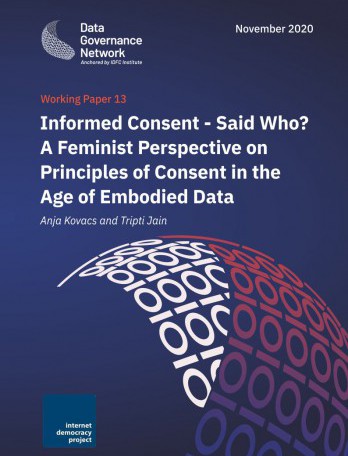

- Privacy
- Consent
-


-
By Multiple Authors keyboard_arrow_down 24 Nov, 2020




While consent continues to be a crucial element of data protection regimes around the world, it has also been diagnosed with numerous weaknesses as a tool to promote and protect individuals' autonomy. In this paper, we set out to learn from feminist theory around consent in general and feminist applied thinking around sexual consent in particular how consent regimes in data protection can be strengthened. We argue that such a journey will be promising because of the close entanglements between our bodies and our data. We particularly foreground feminist criticisms of the concept of “property in the person” to understand in more detail the profound harms that current data practices do to our personhood, as well as the ways in which consent is currently deployed to enable and even legitimise such practices, rather than challenge or reject them. Through close engagement with feminist thinking around consent, we then develop a list of feminist principles that will need to be followed if consent is to ever be meaningful in data governance. Finally, we outline three areas of change that the application of these principles immediately points to: changes related to the collection of data; changes related to the uses of data; and changes required to protect people who are especially vulnerable in particular. Making these shifts, we argue, is essential if we are to put into place a data infrastructure that is actually empowering for, rather than exploitative of people.